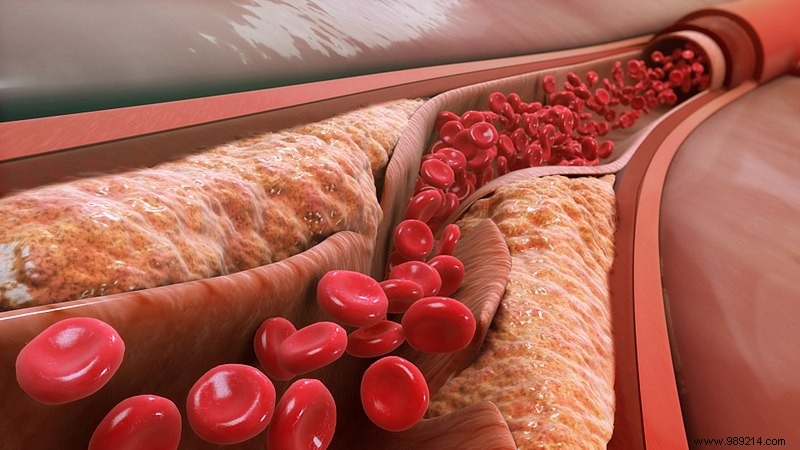Spanish researchers have developed a rather simple and quick stress test to screen for coronary heart disease. The person will simply have to climb stairs at a certain pace and within a set amount of time. This could initially avoid screening using traditional methods.
Jesús Peteiro is a cardiologist at the University Hospital of La Coruña (Spain). In a study published by the European Society of Cardiology on December 11, 2020, the person concerned and his team indicated that they had developed a stress test to determine the presence or absence of coronary artery disease. Remember that this kind of disease affects the arteries, which have the function of supplying the heart with blood. At the origin of this evil, we often find atherosclerosis, that is to say an accumulation of plaques inside the artery walls (see below).

According to the researchers, this test gives a very fast. The person will simply have to climb 60 stairs in less than 60 seconds (four flights of stairs). As part of their study, doctors tested 165 symptomatic patients at risk for coronary heart disease. For each participant, exercise capacity was measured in metabolic equivalent (MET), which is the rate of energy expenditure (or oxygen use) while seated.
According to the results, patients who climbed the sixty steps in 40 or 45 seconds obtained a high score (between 9 and 10 METs). In the case of a score of 10 METs, it is a question of a very low mortality rate , i.e. less than 1% per year (or 10% in 10 years). On the other hand, patients who took at least 90 seconds to climb these same steps obtained a score of less than 8 METs. This is then synonymous with a mortality rate of 2 to 4% per year (or about 30% in 10 years). The scientists also performed treadmill tests and obtained images of the heart. The objective? Assess organ function during exercise. However, normal functioning is accompanied by a low probability of contracting coronary artery disease.
“If it takes you more than a minute and a half to climb four flights of stairs, your health is not optimal and it would be a good idea to see a doctor. The idea was to find a simple and inexpensive way to assess heart health. This can help doctors triage patients for further examinations,” explains Jesús Peteiro.
The stairs test could therefore prove to be very effective, even essential, when we consider that coronary heart disease is the most common form of heart disease. Thus, this form of screening would initially avoid having to undergo the classic battery of tests such as MRIs, angiograms and other electrocardiograms.